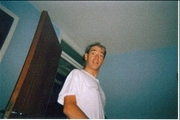Tutor HuntResources English Resources
Anon: The Boy Who Saw True
Book Review
Date : 30/07/2012
Author Information

Uploaded by : Guy
Uploaded on : 30/07/2012
Subject : English
The late diarist who wrote this account of his boyhood insisted on anonymity and posthumous publication has done a wonderful service for anyone who is at all inquisitive about all the domestic dramas that attended life in a well-to-do family in late Victorian England. This is the remarkable account of a boy with clairvoyant powers growing up and learning to live with all the miseries and hypocrisies inflicted on him by the adults around him.
Exhorted in one of the many visitations of his late Grandpa to keep a diary that would one day be published and thereby bring light to the benighted world of sceptics around him the boy remained true to his spiritualist faith.
Seeking a cure at Southport Hydropathic Spa for her son`s embarrassing habit of drawing attention to his powers of second sight his mother is horrified to discover that the boy`s powers are accepted as genuine by many of the adult guests he encounters.
The diary is endearing and gently humorous so that readers cannot help but side with its deeply sensitive young protagonist. With the boy we laugh at the adults around him for all their various embarrassments and hypocrisies. From their fumbling explanations about the meaning of scri ptural words like "adultery" and "circumcision," to the carbuncle on the curate`s "B-T-M" and on to the vicar`s piles it`s all wonderfully observed.
Yet there is a searing spiritualist critique of the established Church at work here. As Mr Patmore, the boy`s sympathetic tutor observes-people who talk a lot about Heaven are never in a hurry to get there!
The boy`s attempts to understand the strange relationship most of the adults around him have with the Truth and his efforts to forge his own relationships with God and Jesus are deeply moving. His struggle to assert his individuality on the stifling conformist culture in which he lives where his Mother insists that everyone be "as alike as two peas" also make this an inspiring book.
However a salutary lesson hangs by the life-story of the writer and is appended at the end of the book. In letters he wrote as an adult we discover his life was marred by an unhappy ill-judged nine year marriage to an American girl. A lavish inheritance meant he grew up never needing to work nor did he,as a painter ever need to sell a picture. The sense of a life unfulfilled therefore suffuses these later letters.
The only real insight his spiritual powers seem to have afforded him into the future as an adult seem to be that he sensed he would never live to see Man`s next great tribulation: World War One.
The book`s melancholy ending is thus a timely reminder of the spiritualist`s all too idealistic love of Man and the materialist`s all too destructive love of money.
This resource was uploaded by: Guy
